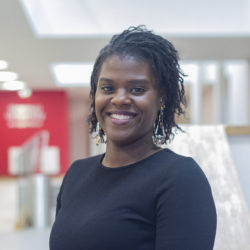Dr Andrews shares expertise on linking genes with COVID-19

Dr Nicole Andrews, Lecturer in Health and Social Care at Newman University, has shared her expertise regarding drawing links between COVID-19 deaths among BAME people and genetics, specifically when looking at links with higher prevalences of conditions such as type two diabetes and genetics. Dr Andrews commented it is important to look at all the reasons why South Asian and Caribbean communities are more susceptible to type two diabetes, including through work patterns.
A recent study found that 35 per cent of patients critically ill with the virus were non-white, compared to 14 per cent of the UK population as a whole and it was reported that 64 per cent of coronavirus deaths at Birmingham City Hospital in March were from the black African and Asian communities, falling to 50 per cent in April. It was also reported that 50 per cent of South Asian COVID-19 patients and 64 per cent of Caribbean patients being treated at University Hospitals Birmingham also have diabetes. The percentage for white patients was 29 per cent.
Dr Andrews said: “Genetics can only tell a small part of the story. At this time when a lot of biological work is being done, it is important that the work of sociologists and other fields is also seen as a valuable contribution.
“If you look at illnesses like type two diabetes, BAME communities are always over-represented when diagnosed with these conditions.
“If we only take the view the disproportionate impact on BAME communities is down to genetics, we are painting communities as being genetically deficient.
“If we think about race and how we are challenging race, rather than an issue of genetics it is an issue of structural inequality.
“Certain people from certain backgrounds have higher prevalence of type two diabetes. You can trace this to access to services.
“South Asian men are more likely to be diagnosed with type two diabetes, but which men? Is it the men who drive taxis for 18 hours, which impacts the food they are eating? We know that working certain patterns influences sleep patterns.
“If they work an 18-hour shift, a type two diabetes support group meeting at 2pm isn’t going to be helpful to him. How do we engage communities in ways that reflect the dynamics they are living in?
“If we are looking at Caribbean women, they are more likely to be working as key workers and not working a 9am to 5pm pattern.
“It’s too simple to say the increased coronavirus deaths are because of type two diabetes. We have to ask what made them more likely to get it in the first place?
“What very much comes across is that a lot of BAME communities are the key workers.
“These communities who have been ignored for so long are now central to the UK’s survival. It’s upsetting to see these communities hurting at the moment.
“Birmingham could be a city that takes the lead in redressing these health inequalities.
“The city could be looking at factors that make some people more predisposed to type 2 diabetes through lack of access to exercise.
“Being in lock down for all this time, especially if you are already vulnerable, is going to exacerbate that risk.
“There is such a massive, stark divide in this city. We know from past research such as Kate Pickett and Richard Wilkinson’s The Spirit Level that in societies where there is less inequality, everybody benefits.
“Birmingham is the ideal city to do something if it has the will and the drive.”
